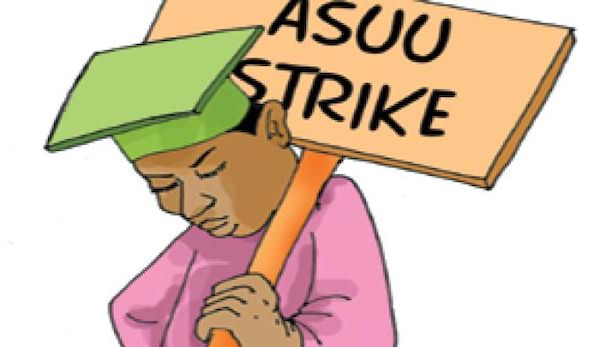Your column on the above subject in the February 25 issue of Daily Trust refers, please. In addition to the options you proffered, I have a few suggestions of my own.
1. Whenever there is a negotiation between ASUU and the government, it is assumed that all the delegates on both sides are true stakeholders. The reality is that most of them are not because their children are not attending public universities and therefore, have nothing to lose in the event of extended strikes. So, we should insist that only those whose children are attending public universities, on both sides, should participate in such negotiations. Anyone whose children attend private universities should automatically be disqualified from participating. In fact, this condition should be extended to other top officials in the education sector; such as the minister of education, the permanent secretary, directors, deputy directors, assistant directors in the ministry, members of education committees of the Senate and House, etc. They should all lead by example by glaringly patronising the public schools including public universities. However, we should not rely on the government to take action along this line, therefore, the media should be vigilant and promptly expose any delegate to such negotiations who has no child in public schools.
- Ramadan: Saudi Arabia, firm to feed 12,600 Nigerians
- COVID-19 killed over 3,000 Nigerians in 2 years – NCDC
2. On the issue of harassment of students by lecturers, the solution is simple. In the USA, every lecturer is assessed by his students at the end of every session and if the majority of his students don’t want him, his contract will not be renewed as most lecturers are on contract renewable every year. If this system is adopted, any lecturer who sexually harasses students or extorts students will be weeded out of the institution. In fact, such unholy practices will promptly stop.
3. In the 1970s, only unionised workers were allowed to go on strike and because only junior and middle-level workers were unionised senior staff were never on strike and would remain during the strike to keep the system going. So, strikes never lasted beyond a few days in order not to overstretch senior staff that keep the system going. But how come senior staff in universities are allowed to go on strike? How come they were allowed to be unionised in the first place? There is the need to review the system that allows lecturers above a certain level to go on strike giving them the chance to unpatriotically wreck the whole system. The easiest way is to remove the senior staff from being unionised so that only the junior and middle-level workers are unionised and can go on strike.
Engr. S. I. Sodangi

 Join Daily Trust WhatsApp Community For Quick Access To News and Happenings Around You.
Join Daily Trust WhatsApp Community For Quick Access To News and Happenings Around You.

